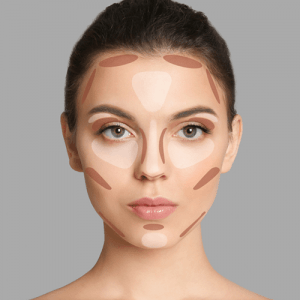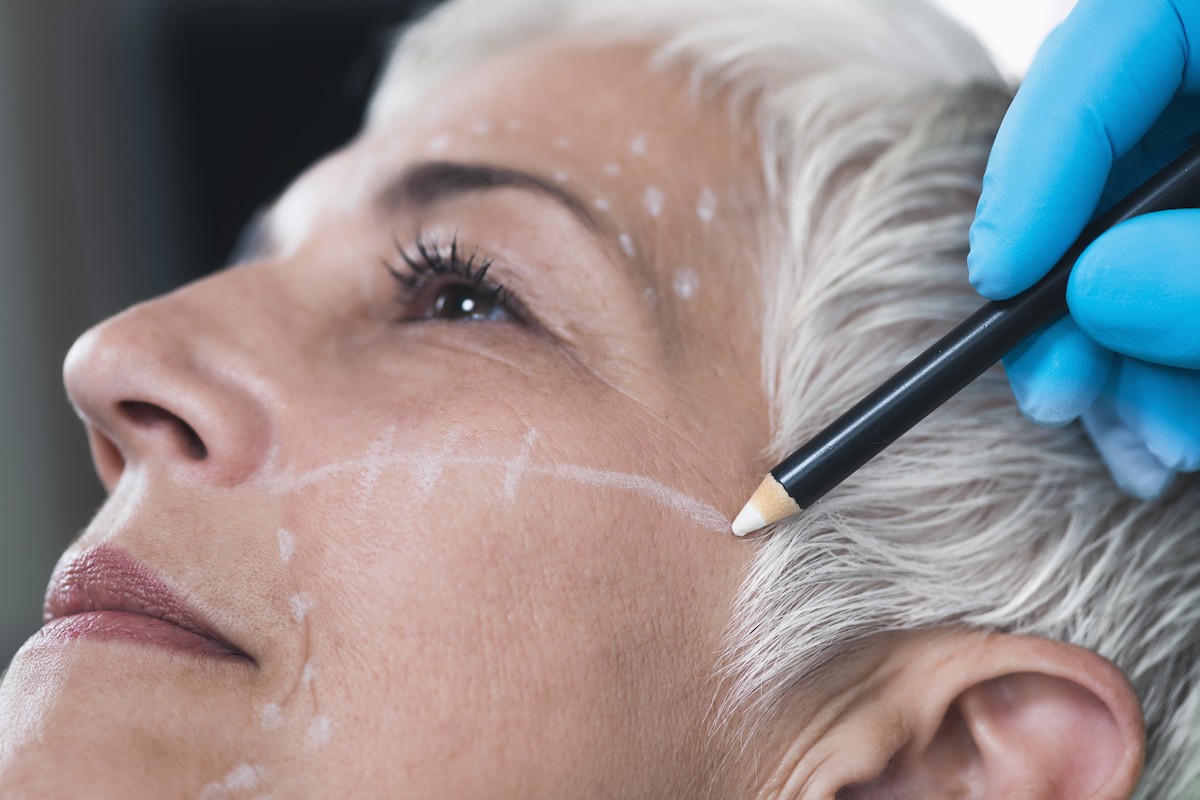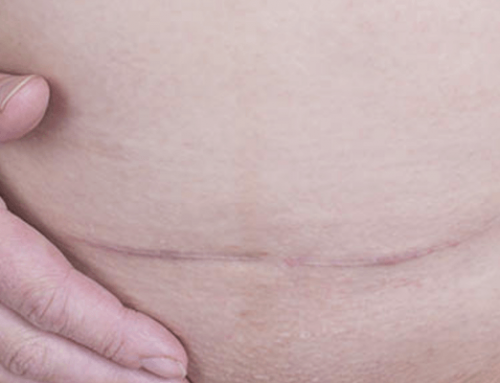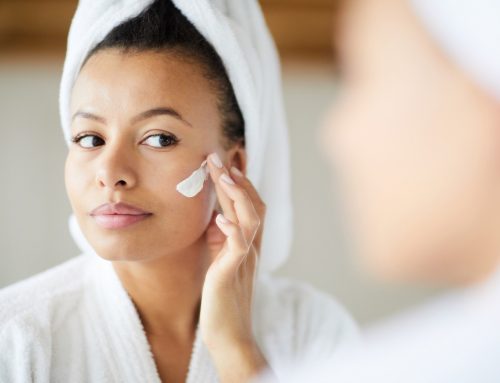When I was a medical student, Linus Pauling visited our medical school and gave a lecture. Dr. Pauling had won a Nobel Prize for a vast body of work in chemistry including the elucidation of the chemical structure of proteins. His talk, however, had nothing to do with any of the topics for which he was famous. Instead, he spoke of the benefits of massive daily intake of Vitamin C, most notably its ability to influence aging, slowing the whole process. His conclusions were without scientific merit. The talk was really nonsense, in the end. There was simply no scientific evidence to support his claims.
One has to wonder how someone so brilliant and well-educated could succumb to such self-deception. How could a scientist of integrity simply turn his back on the scientific method? I can’t imagine there was any financial profit in it for him. My guess is that he feared death, as he by this time was getting on in years, and grabbed on to this delusion like a drowning man to a life raft. Most of us don’t want to grow old and die. As the end approaches, desperation can set in. Sometimes we convince ourselves that if we can convince others to adopt our beliefs, then they must be true.
It is this desperation that makes us prey for the modern-day snake oil salesman. These sales techniques are designed to give us what we want. In this case, it is something to make us remain young. Indirectly, it is suggested as a recipe for immortality. The problem is, nothing works. Period.
You can’t stop aging!
The search for a fountain of youth is as old as written history. We now laugh at the notion that a magic well can confer immortality through its water. It is a ridiculous notion. Yet in modern terms, the search continues. The self-deception born of desperation still lives.
We all engage in self-deception from time to time. It is a normal psychological exercise that can provide emotional comfort. There is nothing wrong with this unless the consequences of this indulgence are negative. It’s okay to waste a little money on youth cream if it makes you feel better. It’s quite another matter, however, if an administered treatment causes harm.
Consider two “anti-aging” regimes. Topical Vitamin C (a skin cream) does nothing to reverse aging in skin. It may create visual changes that make the skin appear to be younger, but this is only an illusion. There is really nothing wrong with that. The skin looks better and no harm is done, even if the claim that this skin is being held back from aging is false.
Vitamin E, which has its own biochemical role, also does nothing to slow aging. For the longest time, it was generally believed that this anti-oxidant scavenged free radicals and slowed the aging process. Now, studies have shown that the consumption of large doses of Vitamin E actually shortens life expectancy. The explanation is multifaceted, but the conclusion remains in spite of conventional wisdom. Too much Vitamin E will shorten your life.
Even for critical minds, logic and facts can be twisted into irrational beliefs that influence our behavior. The subconscious reward can be very intoxication. No wonder, in the quest for a few more years of enjoyable life, we end up embracing weird exercise regimens, crazy diets, dietary supplements, crystals under our beds, crystals over our beds, and on and on.
Many anti-aging fads are given gravitas by bogus scientific claims. “Studies show”, “experts claim”, “nine out of 10 doctors believe” represent the veneer of junk science that lends logical credence to a product. But it’s all nonsense. There is nothing that you can consume or apply that we know of at this point in time that stops or even slows aging. We can’t stop aging. If you feel good taking youth serum, that’s okay. Maybe it will do some psychological good. Just don’t let it kill you.
What Exactly is Aging?
Is aging the product of wear and tear or is it a genetically programmed function? This is an important question. If the former is true, then it might be possible to slow aging by avoiding wear and tear or repairing it once it has occurred. If aging, on the other hand, is a genetically determined function, then we don’t have much control over it. That is, at least until the genetic engineers begin unraveling the nucleic acid code that promulgates aging.
Theories attributing aging to the effects of wear and tear posit that the product of environmental trauma gone uncorrected leads to deterioration, aging, and eventually death. This “environmental trauma” includes free-radicals, radiation, chemical damage, and other agents. These environmental poisons damage cells in the body and their components, such as DNA, leading to a decline in vitality and performance of many physiologic systems-aging.
As a consequence of this reasoning, strategies can be designed to combat the rate of aging and even reverse it. If, for instance, the build-up of free radicals causes aging, then their reduction or elimination might slow or stop the clock. The most important word in the last sentence is if. So if you believe this unsubstantiated claim, then you’re inclined to open your wallet and purchase products that claim to do just that.
Although the hypothesis about aging and free radicals is interesting, it’s all based on flimsy, false, or incomplete scientific evidence. This means the products and treatments of this realm are also based on false premises. As a matter of fact, some recent (but early) scientific research suggests that a reduction in free radicals may actually increase the risk of cancer. This is because the molecules might be part of the body’s natural defense against cancer cells. Patients on chemotherapy, where free radicals are mediators in the anti-cancer capability of these drugs, are told to avoid Vitamin E while they are undergoing treatment. At best, Vitamin E above the daily requirement (which is very small) is ineffectual. It is a waste of money. Ditto for Vitamin C and all the other vitamin and supplemental elements.
The Genetic Clock
A more likely mechanism for aging requires the presence of a genetic clock that drives developmental events in our biological lives. This clock is a program encoded in our DNA. The temporal journey of the organic life cycle is, in a sense, predetermined by our DNA.
Evidence for this theory is almost ridiculously obvious. Growing up, reaching puberty, the graying and then the loss of hair, menopause, and finally death fall along a timeline in each and every life. There are variations, naturally. Some enter puberty earlier than others. Menopause may occur in midlife over 2 decades in populations of women. (But it almost never occurs before 30 or after 60).
The final event, death, is also determined by genetics. This is qualified, however. We are referring to death by natural causes and limiting the observation to groups of individuals, not the individuals themselves. We all know of ethnic groups who live longer or shorter than the average for all humans. Their clocks are winding down either faster or slower.
There is also a genetic condition called progeria which is characterized by rapid aging. The unusual speed of the aging process in these individuals is independent of the environment. It is strictly genetically determined. As a matter of fact, the genetic defect responsible for this condition has been identified. To be completely accurate, progeria is not simply accelerated aging. It involves a number of health consequences among which, accelerated aging is a component. But there is a connection between DNA and life expectancy demonstrated here.
We are genetically programmed to age and die. Our DNA is the conductor of the symphony we call our lives. It orders us into existence and instructs us to grow and develop. It ushers us through puberty and later tells us the time for having children is over. With the wave of the genetic baton, our hair turns gray (unless it falls out altogether). We lose the ability to repair the damage of everyday life. Finally, the last note plays and we die.
A Philosophical Rationale for Aging
Cosmologists may argue about the arrow of time in the universe, but in biologic systems, there is no doubt that it exists and points in one direction- that ordained by the DNA program. Teleologically, this DNA clock simply has to exist. If it didn’t, we wouldn’t be here considering the topic of aging.
If organisms didn’t age and die, there would be little or no turnover. Nature would not have the opportunity to experiment with genetic combinations that produce superior, or at least different, forms of life. Therefore, Nature doesn’t want us to around too long. Nature tries us out and then brings in the next batch of slightly different DNA to see how it fares in the world. Life changes because of the “trial and error” management of life forms on this planet.
Over the next few million years, we can expect Homo sapiens to change as well. As a matter of fact, since we are beginning to understand and actually use genetic engineering, mankind might take up the task of directing and hastening the evolutionary process. (Judging the history of human behavior, this acceleration of evolution might indeed be a noble endeavor.) This will probably include some manipulation of the rate of aging.
The genetic clock will need to be identified and then adjusted. A form of such a “genetic clock” has been isolated in a lab mouse. This particular strain of rodent demonstrates a circadian rhythm; the daily cycle of metabolic activities that is about 25 hours rather than the usual 24. The genetic sequence that is different in these animals, and presumably the mediator of the unusual biological pace, has been identified. So geneticists are on the trail.
Do Not Dismiss Wear and Tear Altogether
This does not mean that the effects of wear and tear aging are insignificant or unworthy of consideration. It may be that these destructive agents hasten aging. It is arguable that the effects are significant, but they certainly deserve to be scientifically explored.
However, the potential age is genetically determined. Environmental factors may influence the organic consequences of aging, but they do not affect the genetic clock. Any favorable manipulation of wear and tear variables might influence the quality and quantity of life, but only in the time framework dictated by the genetic clock. It is necessary that the scientific inquiry be thorough and unbiased. Scientific truth is not necessarily what we want it to be.
Can We Slow Aging?
There is no scientific evidence to show that anything significantly alters the aging process. There may be some minor influences that will be discussed later but for the most part our age is governed by our pre-programmed genetic clocks. Someday, genetic engineers may be able to adjust the speed of the clock, but for now, this is beyond our capability.
Explaining the Lengthening Lifespan
The lifespan in this country has roughly doubled in the last 150 years (from about 40 years to 80 years). Some may point to this (incorrectly) and argue that this is a fundamental change in the aging process. This is not the case, however, genetically speaking.
The removal of the hazards of life so that pre-genetically determined age potential is more likely to be achieved in actuality is the explanation. Humans born 200 years ago had just as much potential life as we have today although life expectancy then was some 50 years less. They just ran into obstacles of death before their time, genetically speaking. The identification and elimination, or at least management, of these obstacles, has led to the dramatic increase in lifespan.
Nutrition and Sanitation
I was in Bangladesh years ago and many children never made it to adulthood. Some died of starvation but many more died from gastrointestinal infections acquired by drinking contaminated water. The high level of child mortality profoundly influences the life expectancy of that sample population. The provision of adequate and sanitary food and water is the single most important factor in the extension of life expectancy for mankind. Life expectancy probably increased by as much as 20 years as a result of the availability of adequate food and proper sanitation.
Public Health
Childhood immunizations have pushed up life expectancy in this country and the world. Diseases like smallpox, polio, whooping cough, and measles, which kill many children in the last century, have been dramatically curtailed or even eradicated. Other public health initiatives have allowed control of potentially lethal bacterial and flu epidemics. The use of pesticides to eradicate carriers of lethal pathogens is another example of highly successful public health initiatives.
Trauma
The most likely way for a young adult to die in the United States is from trauma. There are still many years lost as a consequence of auto accidents, murder, and natural disasters. It is likely that mankind will be dealing with trauma, perhaps in varying forms, for the foreseeable future. Avoidance is certainly the best solution, but short of that, methods of protection and treatment are helpful. Penetrating trauma, once upon a time was nearly always lethal. Modern trauma centers have changed that grim prognosis. Safer cars, work environments, and warning systems for natural disasters prolong life through public mandate and management.
Modern Medicines
Modern sophisticated medicine has tacked on a few more years to life expectancy. Management of diseases like hypertension, diabetes, renal failure, heart disease has extended the lives of individuals that would, without treatment, succumbed to those illness years before.
A very recent and good example is HIV. In 1980, the diagnosis was the equivalent of the delivery of the black spot. Life expectancy, after diagnosis, was 5 to 10 years. With newly developed medications, the prognosis is remarkably longer in a condition that afflicts, generally, a younger population.
Lifestyle Choices
Avoidance of self-destructive behavior (such as excessive smoking or drinking) is an indubitably life-lengthening lifestyle choice. The effects of different forms of overindulgence vary from individual to individual. But taken together, if all self-destructive behavior were eliminated, several years would assuredly by added to the average lifespan of mankind.
It’s unlikely that elimination will ever be accomplished. Humans seem to be hard-wired for it. There is always a new drug or habit to substitute for one that has been dropped. Even a necessity like food can be a source of an unhealthy lifestyle choice. Where once inadequate food was a source of mortality, now obesity is a more serious problem.
So where does that leave us? After we have removed the obstacles and allowed for full age potential, how long can we expect to live? For the average human who lives in a clean environment with proper public health policies, adequate nutrition, who avoids excessive risk-taking and self-destructive behavior, it looks as though age of 80 to about 100 is expected. That would be the age that the genetic clock allows. We can live up to those expectations, just not exceed them. The genetic clock will move along at its prescribed pace and will strike midnight for all of us.
Snake Oil and Anti-Aging
Years ago there was a commercial on TV featuring a genetically related group of people living in the steppes of Russia who commonly lived well beyond 100 years. Their lifestyle was simple but arduous. They also ate a lot of yogurt. You needn’t have a great deal of imagination to conclude what product was being advertised. Nevertheless, their collectively long lifespans had little if anything to do with the consumption of yogurt. The commercial converted a random association and reinterpreted it as a cause and effect.
These same Russians also lived simple lives, worked arduously, and continued to do so until late in life. Do these lifestyle choices have anything to do with their old age or are they random associations as well? Certainly, it’s generally accepted that exercise contributes substantially to the length of life. But does it? And what about all those other anti-aging solutions?
Exercise
There is very good evidence that exercise can lengthen your life, but not by much. Of course, the proper type and amount of exercise”has to be defined. To distill what is tossed about in the literature, adequate exercise to achieve optimum cardiovascular health is moderate to vigorous exercise for 30 minutes at least 5 days a week. Anything more than that, although you might be in better overall condition and psychologically more sanguine, probably does very little to extend life expectancy.
We must also consider the effects of too much exercise. People do die each year from overexertion. Sudden death in otherwise healthy individuals can occur during an extremely vigorous workout. Underlying cardiovascular disease can be mortally unveiled at the hands of even modest exercise. Repetitive exercise can lead to injuries (bad knees, hips, and backs) that may indirectly influence how long someone lives.
Properly monitored and executed exercise can extend life by possibly a few years. Beyond the “optimum” amount, exercise does not benefit longevity and may even shorten it. In any event, the advantages of exercise have nothing to do with slowing the biological clock. Once again, the better advantage is made of potential age that is already genetically determined.
So go ahead and exercise. Just don’t overdo it.
Vitamins
Vitamins are molecules that participate in certain metabolic processes in the body. They are needed in extremely small quantities to complete the chemical functions they participate in. The specific biochemical roles of vitamins are well understood as well as the quantities needed. Unfortunately, some proselytes for vitamin therapy have concluded that since vitamins are “good”, taking a lot must be even better.
Vitamins are divided into fat-soluble and water-soluble. The fat-soluble vitamins (D, E, A, K) can be stored in the fat of the body and will build up, over time, if intake exceeds expenditure. In the U.S., it’s hard to imagine anyone deficient in fat-soluble vitamins. To complicate matters, excess consumption of some fat-soluble vitamins can lead to poisoning.
It has been theorized that compounds known as free radicals participate in the phenomenon of aging. These are molecules with an extra electron that can be biologically destructive. The accumulation of damage from these free radicals, it is hypothesized, accelerates aging. Vitamin E is thought to be a scavenger of free radicals. It receives its extra electron and neutralizes the hazards of the free radicals. There are other free radical scavengers, such as beta carotene, that act similarly.
There is very controversial evidence that Vitamin E (and other antioxidants) may decelerate atherogenesis in the coronary and favorably influence the rate of certain cancers. Regardless of whether these claims are accurate, life expectancy will not be significantly extended by consumption of Vitamin E. Potential life will not be extended. Furthermore, excess intake of Vitamin E has been linked to an increase in death from stroke.
Water-soluble vitamins are not really stored so have to be consumed at more regular intervals than the fat-soluble group. Minimum daily requirements have been established and are generally provided by a reasonable diet. There is no credible evidence that exceeding intake by taking excess, in some cases, massive, amounts have any biological benefit. If there is found to be an influence on carcinogenesis (the development of cancer), it will be modest and, once again, has nothing to do with extending life potential.
As with most supplements, there is the potential for harm if excessive amounts are delivered into the body. Excess intake of Vitamin C, for instance, can interfere with the uptake of other vitamins and minerals, cause diarrhea, increase the risk of kidney stones, and possibly can damage DNA
Hormones
One of the byproducts of normal aging is the decline in the production of certain hormones. Estrogen, testosterone, growth hormone, and others are measured at lower levels with advancing age. It has been postulated that the resurrection of hormone levels by administration of supplements to more youthful levels might have an influence on aging.
They might. But they might not.
Hormones are very potent molecules with complex effects. Some of the effects are bad. Growth hormone, for instance, might accelerate the healing of an injury, but it also accelerates atherogenesis in the heart and peripheral blood vessels. The cumulative benefit is, at the moment, unknown. It’s dangerous (and probably irresponsible) to take these hormone supplements for long periods of time based on what we know.
Anything Else…
The problem with writing a blog post like this is that by the time it’s published and read, some other snake oil salesman will be pushing the benefits of some therapy I have not even considered. Be wary. It’s highly unlikely that consuming some herb or spice will affect aging. Once again, something that is supposed to extend your life might actually take your life.
In the end, our life expectancy is pre-ordained by our DNA. We can increase life expectancy by removing or reducing risks of life that prevent us from reaching old age. The biggest boon for mankind in this regard is the provision of sanitary food and water. Next, in terms of the magnitude of influence, would be public health projects such as sanitation, immunizations, control or elimination of epidemics, and better prediction and response of natural disasters.
The individual can have some impact as well. Reduction of risk to trauma by avoiding dangerous situations or activities. Driving carefully in safe automobiles is an excellent example. Self-destructive habits definitely shorten life. Smoking has a clearly defined impact on longevity.
Finally, there may be some proactive ways to extend life. Exercise has definite benefits. A healthy diet probably confers a few extra years. Dietary supplements may have modest life-prolonging potential. These are practices that combat the “wear and tear” form of aging.
The biologic clock, however, continues its pace uninterrupted. It seems clear that, under the best of circumstances, humans can’t live longer than 120 years. No one has ever passed 125. So without some genetic tampering with the biological pace of aging, our block of time is pretty well established.
Can the genetic mechanisms that drive aging to be altered? In my opinion, absolutely yes. Already, some of the areas of DNA that pace biologic activity in animals have been identified. Genes in lower animals have been discovered that are associated with prolonged survival. It’s only a matter of time until the scientists probing the mysteries of DNA identify, and then control, the biomechanisms of aging.











